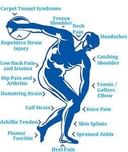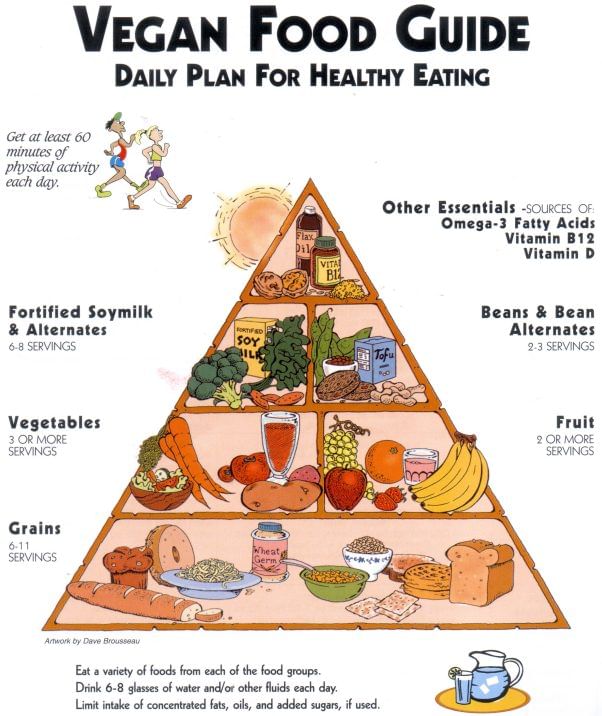Exercise and Vegan diet : Increase the nutritional value
Diet and exercise make up two primary ways to build a healthy lifestyle. A typical vegan diet includes grains, vegetables, fruit, legumes (dried beans, peas and lentils), seeds and nuts.A healthy vegan diet need proper planning to get enough protein, iron, zinc, calcium, vitamins D and B12 and omega-3 fats from foods or supplements.
However, for athletes or anyone interested in being physically active on a regular basis, there may be concerns about getting adequate nutrients such as protein to fuel performance and build muscle.
Since vegetarians consume more plant foods on a regular basis, the absorption of several nutrients may be reduced
If you are a vegetarian, READ on for some advice on getting the balance right and for directions on potential vitamin and mineral deficiencies to look out.
1) Protein:
a) Protein is important for building and keeping muscles and red blood cells healthy. Sources of protein include:
b) Sources:
*soy and soy products like tofu, tempeh and fortified soy beverages
dried beans (kidney, black and white beans),
*peas (chickpeas and black-eyed peas) and lentils (red, brown and green lentils)
*grains (quinoa, brown rice, bulgur and oatmeal)
*nuts, nut butters (hazelnuts and almond butter) and seeds (sesame and sunflower)
*peanuts and peanut butter.
2) Iron
a) Iron helps carry oxygen to different parts of the body.
b) Vegans need about twice as much dietary iron as non-vegetarians because the iron from plant foods (non-heme iron) isn’t as well absorbed as the iron from animal foods (heme iron).
c) Sources:
*some nuts and seeds like cashews, almonds, pumpkin and sesame seeds
* prune juice and dried apricots
*vegetables like cooked spinach, kale and potatoes with their skins
* black strap molasses.
d) Caution :
* Iron from vegetarian sources is better absorbed when eaten with vitamin-C rich foods.
* Also remember some produce such as caffeine can inhibit iron absorption. So try and delay that after after-dinner coffee for at least 30 minutes.
3) Vitamin B2
a) It is responsible for a range of bodily functions such as maintaining healthy eyes, skin, and nervous system.
b) sources: most cereals, mushrooms, milk, pumpkin, sesame seeds, and wheat germ
c) Caution:
* It is also vital for iron absorption and the development of red blood cells and anabolic reactions in the body. .
4) Vitamin D
a) Vitamin D helps the body to absorb and use calcium and phosphorus for strong bones and teeth.
b) Sources of vitamin D include: The recommended daily amount is approximately 10 micrograms and can be found in: soya milk, butter, eggs, soya cheeses, yoghurt.
c) It is also well-known that we can absorb vitamin D from the rays of the sun. Gain sufficient ‘lux’ from natural light on a daily basis.
Calcium
5) Calcium
a) helps bones to grow and stay healthy. It also helps muscles to contract, including making the heart beat.
b) sources: protein rich soya milk, yoghurts and cheeses.
*Other good calcium sources include nuts, seeds, figs, rhubarb and a range of beans.
*soy yogurt, fortified soy beverages and other fortified non-dairy beverages like rice and almond beverage
.
6) Zinc
a) Zinc is needed for growth and development. It also helps strengthen the immune system and heal wounds.
b) sources:
*pulses, wheat germ, whole grains,fortified cereals and whole wheat bread
*some nuts like pecans and cashews and their butters like cashew butter
*peanuts and peanut butter
*pumpkin seeds and sesame seed butter (tahini).
7) Omega-3 fats
a) important for eye, nerve and brain development and are helpful in preventing heart disease.
b) sources:
- oils like canola, flaxseed, walnut and soybean
- ground flaxseed
- soybeans, tofu and walnuts.
8) Vitamin B12
a) plays a role in boosting immune function.
b) You only need to find a few micrograms on a daily basis in order to get sufficient vitamin B12.
c) Sources: soya milk, cheeses, yeast extract, vegetable stock and yoghurts.



+1.svg)
